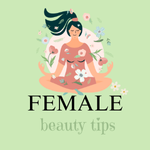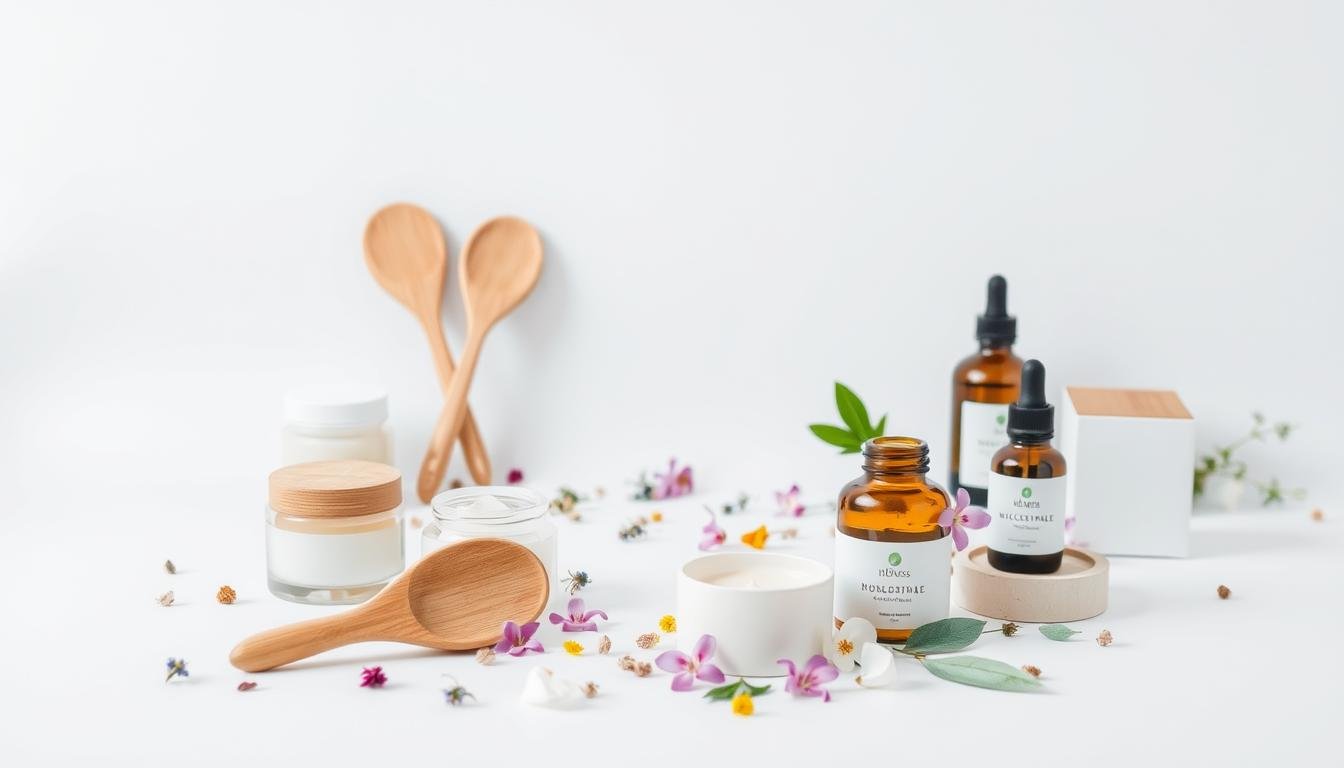Did you know the average person applies over 126 ingredients to their skin daily? While we’ve long focused on what goes into our bodies, the beauty industry is now shifting toward what we put on them. Clean, plant-based formulas are no longer a niche trend – they’re redefining how we care for our largest organ.
Recent studies reveal growing consumer demand for transparency. Brands blending botanical wisdom with scientific innovation are leading this charge, earning praise from editors and dermatologists alike. Their secret? Formulas that work with your skin’s biology, not against it.
This guide spotlights pioneers who prove safety and results aren’t mutually exclusive. From acne-prone to sensitive skin types, these companies prioritize ingredients you can pronounce without sacrificing performance. Their cruelty-free practices and eco-conscious packaging set new standards for the industry.
Key Takeaways
- Clean beauty now rivals traditional products in effectiveness
- Daily skincare routines often contain questionable ingredients
- Editor-approved brands combine science and nature
- Transparent labeling builds consumer trust
- Sustainable practices are reshaping the industry
Overview of the Clean Beauty Movement
What sparked the seismic shift in how we shop for skincare? The answer lies in a perfect storm of educated buyers and bold retailers. Over the last decade, consumers began questioning mysterious ingredients like parabens and sulfates, sparking demand for clarity.
From Counterculture to Counter Displays
Major stores accelerated the change. Sephora introduced its Clean at Sephora seal, while Ulta Beauty launched its Conscious Beauty program. These initiatives gave shoppers easy ways to identify vetted products. Credo Beauty raised the bar further, banning 2,700 questionable components through its rigorous standards.
Advocacy groups played a crucial role too. The Environmental Working Group’s Skin Deep database became a go-to resource, helping people decode labels. Social media amplified these messages – TikTok tutorials and Instagram infographics made clean formulas click-worthy for Gen Z.
The industry responded swiftly. Established companies reformulated classics, while new labels emerged with transparency-first approaches. Today, 78% of US beauty retailers dedicate shelf space to certified clean products – a far cry from their health-store origins.
Defining “Natural” in the Beauty Industry
Walking down skincare aisles feels like decoding a foreign language. Terms like “natural” and “organic” splash across labels, but what do they actually mean? Cosmetic chemist Ginger King clarifies: “The beauty industry has no universal rules for these claims. A product labeled ‘natural’ might contain only 1% plant extracts.”

This regulatory gap lets companies use clever marketing over substance. While “natural-based” suggests most ingredients come from nature, only certifications like COSMOS Natural or Ecocert guarantee standards. These European organizations permit up to 5% synthetic components – often preservatives ensuring product safety.
King advises focusing on “clean beauty” instead. This term emphasizes non-toxic formulas that deliver results without harsh chemicals. She stresses: “True transparency means brands list every component clearly, not just highlight buzzwords.”
Three signs of trustworthy products:
- Third-party certification seals
- Full ingredient disclosure
- Scientific explanations of plant-based actives
Don’t assume “natural” equals gentle. Poison ivy is natural too! Savvy shoppers cross-check claims with certification databases and scan for red flags like “fragrance” without detail. The best companies explain their sourcing and formulation processes openly – proving their commitment goes beyond labels.
Spotlighting top natural beauty brands
Today’s conscious shoppers face a welcome dilemma – which high-performing formulas to trust. Four innovative companies redefine expectations through distinct approaches to healthy complexions.
Merit merges Parisian elegance with rigorous safety standards. Their curated collection skips 1,300+ questionable components while delivering skin-enhancing tints. Hydrating squalane and vitamin B5 create a lit-from-within glow that lasts all day.
For those craving multitasking makeup, Ilia Beauty shines. Their organic botanicals like rosehip oil and shea butter nourish as they color-correct. The brand proves pigments and skincare can coexist beautifully in every swipe.
Makeup legend Bobbi Brown distilled decades of expertise into Jones Road. The line celebrates simplicity with buildable coverage that respects your skin’s texture. Its “less but better” philosophy cuts through overwhelming beauty routines.
Tower 28 addresses a critical need – cosmetics for reactive complexions. Developed with dermatologists, their cream blushes and glosses meet National Eczema Association guidelines. Even sensitive types can enjoy playful colors without irritation.
These labels share core values but cater to different priorities. Whether you seek European-inspired minimalism or skin-soothing botanicals, there’s a thoughtful solution waiting to enhance your regimen.
Rise of Clean Beauty through Innovative Product Roundups
Editors at major publications now serve as personal shoppers for millions. Their rigorously tested recommendations cut through marketing noise, helping consumers discover formulas that truly deliver. This editorial vetting process has become essential in an era where 72% of shoppers feel overwhelmed by skincare choices.

Curated Selections from Leading Editors
Allure’s testing lab puts every product through 3 phases: ingredient analysis, real-world trials, and dermatologist reviews. Only formulas meeting strict performance benchmarks earn Best of Beauty Awards. Recent winners include Merit’s hydrating Flush Balm ($30) and Tower 28’s skin-safe Bronzino ($20) – both praised for multitasking benefits.
What Sets These Formulas Apart
Award-winners share three traits conventional products often lack:
- Clinically proven plant-based actives
- Transparent sourcing documentation
- No performance-compromising fillers
| Product | Key Innovation | Certifications |
|---|---|---|
| Westman Atelier Foundation Stick ($68) | Medical-grade bamboo extract | Leaping Bunny, EWG Verified |
| Ilia Limitless Lash Mascara ($28) | Organic beeswax binding | COSMOS Organic, Climate Neutral |
| Milk Hydro Grip Primer ($38) | Vegan hyaluronic acid complex | Clean at Sephora, PETA |
These editor-loved picks prove ethical formulas can outperform traditional options. As consumers prioritize both safety and results, third-party validation becomes the ultimate trust signal in skincare decisions.
Ingredient Integrity: The Science Behind Clean Skincare
Modern skincare science reveals how plant-based components speak your skin’s language. Formulas rich in herbs and botanicals work differently than synthetic alternatives – they mirror your complexion’s natural processes rather than disrupt them.
Biocompatibility: Nature’s Blueprint
Biocompatible ingredients act like friendly neighbors to your skin cells. Think of coconut-derived cleansers gently removing dirt without stripping moisture. These plant-based alternatives to sulfates maintain your protective barrier while preventing irritation.
Preservatives matter too. Radish root ferment keeps formulas fresh for months, avoiding hormone-disrupting parabens. Studies show rosemary extract fights microbes as effectively as synthetic options – without triggering redness.
| Function | Natural Solution | Synthetic Alternative | Key Benefit |
|---|---|---|---|
| Cleansing | Coco-glucoside | Sodium lauryl sulfate | pH-balanced foam |
| Moisturizing | Jojoba oil | Mineral oil | Non-comedogenic |
| Preserving | Rosemary extract | Parabens | Antioxidant-rich |
Plant oils deliver nutrients synthetic oils can’t match. Argan oil supplies vitamin E to combat environmental stress, while rosehip offers fatty acids to repair dryness. These ingredients don’t just sit on your skin – they actively support its health.
Concerned about effectiveness? Clinical trials prove plant-derived retinol alternatives reduce wrinkles as effectively as lab-made versions. The key lies in combining science with nature’s intelligence – a partnership that benefits both your complexion and overall well-being.
Sustainable and Ethical Packaging Practices
Every year, 120 billion units of cosmetic packaging enter landfills globally. Forward-thinking companies are tackling this crisis by reimagining containers as environmental assets rather than waste. Their solutions blend practicality with planetary care.
bareLUXE Skincare leads this charge with mushroom-based compostable jars that dissolve in soil within 90 days. Their refill pouches use 80% less plastic than traditional bottles, paired with a 1% sales pledge to remove ocean-bound waste. Founder Clara Voss notes: “True sustainability means systems change – not just swapping materials.”
Eco-friendly Materials and Minimal Waste
Three approaches setting new standards:
- Refill revolutions: Beautitionary’s aluminum compacts let users replace pans without trashing the case
- Shipping smarts: Buck Naked Soap wraps bars in seed paper that grows wildflowers when planted
- Closed-loop design: Brands now partner with TerraCycle for free container recycling programs
These innovations address a key challenge: protecting delicate formulas while minimizing environmental harm. Glass dropper bottles with UV coating prevent ingredient degradation. Compostable tubes use plant cellulose layers to block air exposure. As consumers demand greener options, packaging becomes both a science and statement of values.
Transparency and Consumer Trust in Beauty Brands
Imagine reading a skincare label that actually makes sense. That’s the new standard people demand from trustworthy companies. Brands like Primally Pure now share farm-to-bottle journeys, from organic lavender fields to carbon-neutral shipping. Their glass jars and compostable mailers prove eco-commitments aren’t just marketing fluff.
Clear labeling separates leaders from followers. While regulations require only basic ingredients lists, innovators like Annmarie Skincare detail every component’s purpose. Their MADESAFE certification guarantees formulas skip 6,500+ questionable chemicals – a promise backed by third-party labs.
Three ways ethical companies build credibility:
- Live video tours of production facilities
- Interactive ingredient dictionaries on websites
- Monthly sustainability reports
| Certification | Requirements | Example Brand |
|---|---|---|
| USDA Organic | 95%+ organic ingredients | Primally Pure |
| MADESAFE | Zero toxins ecosystem-wide | Annmarie Skincare |
| Leaping Bunny | No animal testing | Pacifica Beauty |
Social media reshaped how companies share values. Instagram Stories now showcase real-time product batches being made. TikTok tutorials explain complex formulations in snackable clips. This openness creates communities, not just customers.
Reviews play a starring role too. Brands encouraging unfiltered feedback build authenticity. When 82% of shoppers check ratings before buying, highlighting user testimonials becomes as crucial as the ingredients themselves. The result? Loyal fans who trust labels as much as their best friend’s recommendation.
Industry Certifications and Standards in Clean Skincare
How can you tell if a skincare product truly meets clean standards? Certification seals act like nutrition labels for your cosmetics – they reveal what’s really inside the bottle. With over 300 eco-labels in the beauty sector, understanding which ones matter helps you shop smarter.

Certifications to Look For
The USDA Organic seal means organic ingredients dominate the formula – at least 95% in certified products. Farmers avoid synthetic pesticides, and manufacturers must prove sustainable sourcing. This gold standard ensures agricultural integrity from seed to serum.
MADESAFE goes further, banning 6,500+ questionable chemicals. Brands undergo 18 months of testing to earn this badge. It’s like a background check for every component – even packaging materials get scrutinized.
| Certification | Focus Area | Example Brand |
|---|---|---|
| Leaping Bunny | Cruelty-free testing | Juice Beauty |
| Climate Neutral | Carbon footprint | Ethique |
| EWG VERIFIED™ | Ingredient safety | ATTITUDE |
Animal lovers should seek the Leaping Bunny logo. This certification requires brands to audit their entire supply chain annually. No hidden animal testing allowed – period.
Climate Neutral certification shows a company’s commitment to offsetting emissions. Brands like Juice Beauty combine multiple seals (USDA Organic + EWG VERIFIED™) for maximum transparency. Remember: real certifications always list issuing organizations’ websites for verification.
How Non-Toxic Formulas Nourish and Protect Skin
Your skin thrives when treated like a living ecosystem. Non-toxic formulas act as caretakers, reinforcing your body’s defenses instead of stripping them. By avoiding sulfates and parabens, these solutions protect your moisture barrier – the essential shield against pollution and stress.
Harsh additives in conventional skincare products often disrupt pH balance, triggering dryness or breakouts. Clean alternatives use plant oils rich in antioxidants to nourish skin while fighting free radicals. Chamomile soothes irritation, while vitamin C from kakadu plum brightens without synthetic bleach agents.
Removing harmful chemicals like phthalates does more than prevent reactions. It lets your complexion self-regulate naturally. Clinical studies show skin repairs itself faster when not battling toxic residues. Hydrating ingredients like hyaluronic acid derived from fermented plants work synergistically with your biology.
For those with sensitivity, gentle formulas deliver results through smart science. Mushroom extracts reduce redness better than steroids. Algae compounds mimic retinol’s smoothing effects minus the peeling. Your skin knows what it needs – non-toxic solutions simply give it the right tools.



